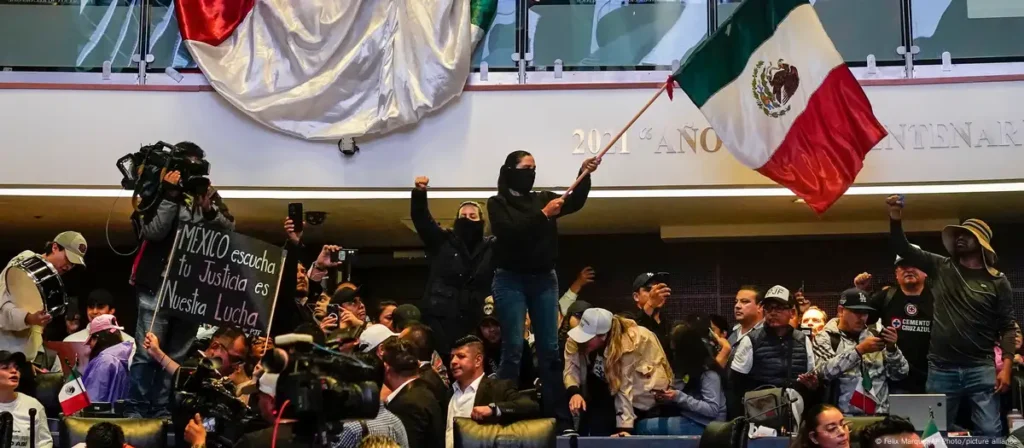All judges in Mexico will now be elected by popular vote, a move that has sparked concern among protesters within the country, as well as from trade partners like the United States and Canada, and international investors.
On Sunday, Mexican President Andrés Manuel López Obrador signed into law the controversial judicial reforms, making Mexico the first country to elect all of its judges through a popular vote.
In a video posted on social media, the outgoing leftist president celebrated the “historic day” as he signed the decree into law.

“We need justice for everyone,” Lopez Obrador said. “For there to be no corruption in the judiciary, for judges, magistrates and justices to apply to the letter the principle that there is nothing outside the law and no one above the law.”
He was joined by president-elect Claudia Sheinbaum, a close ally who will succeed him on October 1. The ruling coalition secured a decisive victory in the June election, gaining substantial majorities in both houses of Congress.
The judicial reforms have not only heightened internal tensions in Mexico but have also strained diplomatic relations with key trade partners like the United States and Canada, while unsettling investors.
Critics argue that the reforms could weaken democratic checks and balances.
READ ALSO: Claudia Sheinbaum Breaks Record, Emerges as First Woman President of Mexico
The United States, Mexico’s largest trading partner, warned that the reforms could jeopardize a relationship built on investor trust in Mexico’s legal system.
In August, U.S. Ambassador Ken Salazar stated that the changes posed “a major risk” to Mexico’s democracy, potentially allowing criminals to take advantage of “politically motivated and inexperienced judges.”
President López Obrador, who has consistently criticized the judiciary since taking office in 2018—particularly the Supreme Court—claimed the overhaul was necessary to better serve ordinary citizens.
“We were told we lived in a democracy, but in reality, an oligarchy was in control—a small, privileged group under the guise of democracy,” he said in a video announcing the reforms.
However, opponents worry that the new law could erode the judiciary’s independence, making elected judges susceptible to political influence and pressure from powerful drug cartels.
The constitutional reform’s publication in the Mexican government’s official gazette marks the beginning of preparations for the first judicial elections, including for Supreme Court justices, scheduled for June 2025.
(Le Monde)
Follow the Parallel Facts channel on WhatsApp: https://whatsapp.com/channel/0029VaCQSAoHgZWiDjR3Kn2E









Leave a Reply